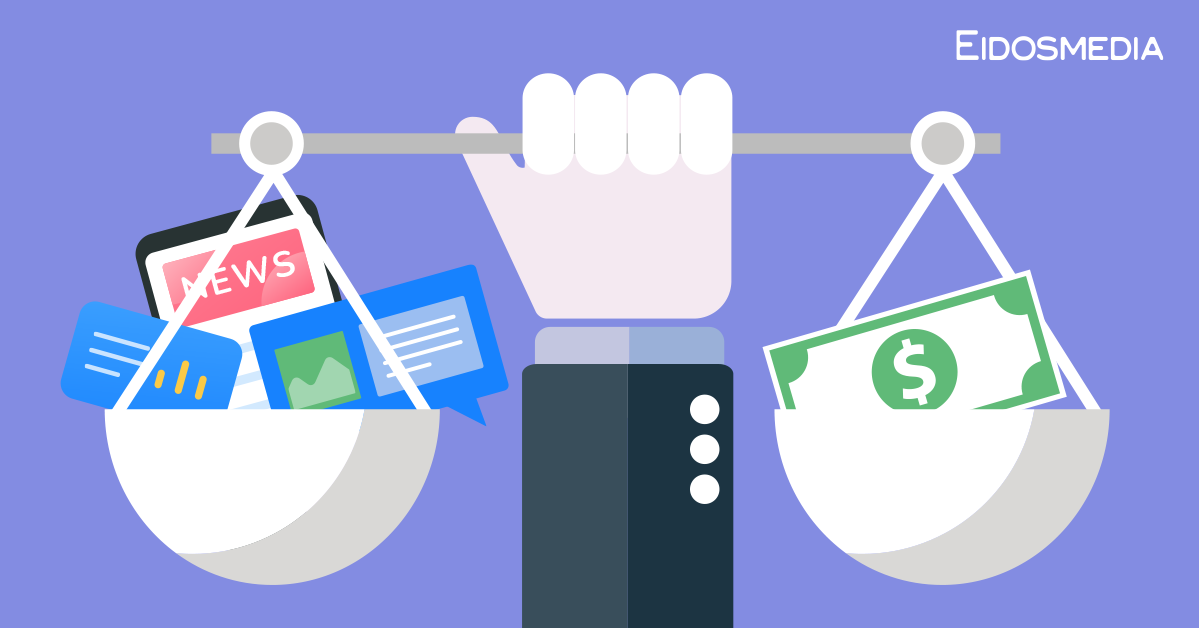Who Should Pay for Online News?
News content drives traffic to online advertising - but most of the revenue created stays with the tech platforms. Governments are moving to redress the balance, but are they going far enough?
Few industries have been disrupted more by the digital revolution than the news media. Even as the media has struggled to stay afloat, companies like Google and Facebook have benefitted from the content these companies create while giving little back. That’s changing.
Government to the rescue?
Now, just as news media publishers are facing new challenges — including questions about how the latest changes in search will impact the business — governments are taking action to help protect news providers. A big win for Canadian news organizations at the end of 2023 may herald a new kind of symbiosis between those who report the news and those who have profited from it.
Canada's Online News Act and its impact
Canada’s Online News Act explains the essential problem governments are trying to address: “Most Canadians now get their news online. In 2022, online advertising revenues in Canada were $14 billion, with two platforms receiving roughly 80 percent of these revenues. While digital platforms earn billions in online advertising, more news outlets shutter each year, due in large part to a loss of advertising revenue.” This scenario has repeated itself across the globe. Publishers lose ad dollars to platforms like Google and Facebook, even as those platforms rely on publishers to create the content that helps bring people back to Google and Facebook. Newsrooms are shrinking — and even shuttering — as the demand for content grows.
Meanwhile, fewer and fewer people are paying for the news they consume. As of February 2023, just 11% of survey respondents in Canada said they had paid for news in the previous year. In Australia, that number was double, but even in Norway, just 39% said they had paid for news, despite being the country where people were most likely to do so.
Australia shows the way
The problem — and the solution — are not new. In 2021, Australia passed the News Media and Digital Platforms Mandatory Bargaining Code to “ensure that news media businesses are fairly remunerated for the content they generate, helping to sustain public interest journalism in Australia.” In that case, the legislation provided a framework for negotiations between the parties and an arbitration process to resolve any disputes while encouraging commercial negotiations outside the Code. Columbia Journalism Reviews reports, “The legislation, known as the News Media Bargaining Code, has enabled Australian news organizations to extract more than $200 million (almost $150 million US) in the year since it went into effect.”
As part of the Canadian act, according to a statement from Heritage Minister Pascale St-Onge, Google agreed to contribute CA$100 million per year to a “wide range of news businesses.”
The International News Media Association (INMA) reports, “Publishers will receive 63% of the funding, private broadcasters 30% and the state broadcaster capped at 7%.”
Other countries from Brazil and New Zealand to the U.S. are also considering legislation, though some have struggled.
How much is online news worth, exactly?
In the years since Australia’s News Media Bargaining Code became law, Google has actively sought to make headway with publishers in other markets with the aim of forestalling government intervention. At the same time, publishers have tried to answer the question of what their content is worth to Google — which is no small task.
“In Switzerland publishers issued a study that said Google owes the Swiss news sector $166 million USD annually,” reported Poynter in May 2023. “Danielle Coffey, executive vice president and general counsel for the News/Media Alliance, a trade association that represents 2,000 news and magazine media outlets worldwide, said U.S. publishers are ‘owed billions,’ but that numbers are being kept confidential as they are likely to be used in arbitration. Canada’s independent Parliamentary Budget Officer has estimated likely compensation to be $329.2 million CAD per annum.”
A good start, but ...
With the Canadian deal in place for just $100 million per year, one has to wonder whether the payments governments have negotiated are enough. For instance, the World Association of News Publishers estimates, “Facebook owes some US$1.9 billion, and Google US$10-12 billion, to news publishers annually. These figures represent a 50-50 split of revenue generated from news content on the platforms.”
While big payouts for struggling news publishers may seem like a boon to the bottom line, some pundits have raised interesting questions. Some worry that further enhancing the news industry’s reliance on Google and Facebook would have unintended consequences, as journalism would now be interested in ensuring the platforms’ continued success — ultimately compromising their impartiality.
The duopoly power of Google and Meta
Additionally, the EUObserver suggests these forced payments miss a more important point: Google and Facebook have too much power in the ad ecosystem. They both buy and sell advertising, decide which ads run on what sites, and compete with their customers for ad space. The result is that "the majority of every ad euro spent online is retained by an ad-tech company ... publishers are being deprived of ad money that should be theirs, simply because a dominant party can decide to deprive them of it."
There are other concerns as well. Rather than pay up, Meta — Facebook’s parent company — has opted to block Canadian users from seeing news content on its platforms. The ban, which has been in place for several months now, is not an ideal outcome for anyone, but small publishers have been hit particularly hard as they are suddenly non-existent in major search and social channels. All of this has also led to a Canadian anti-trust inquiry into Meta.
Early results are promising
One thing is certain: the fallout from legislation meant to help news publishers has had enormous impacts, even when they weren’t exactly what lawmakers intended. Anti-trust inquiries may ultimately address the underlying issue of the duopoly’s dominance in the ad industry. For now, however, Australia is the one place we can look to see how these laws have played out in reality. According to Columbia University’s Institute for Policy Dialogue research, publishers are flourishing: “Hundreds of new jobs have been created as a result of the Code, with The Guardian’s Australian division adding 50 journalists to its newsroom.”
If the “proof is in the pudding,” it’s hard to argue against good faith intervention.

